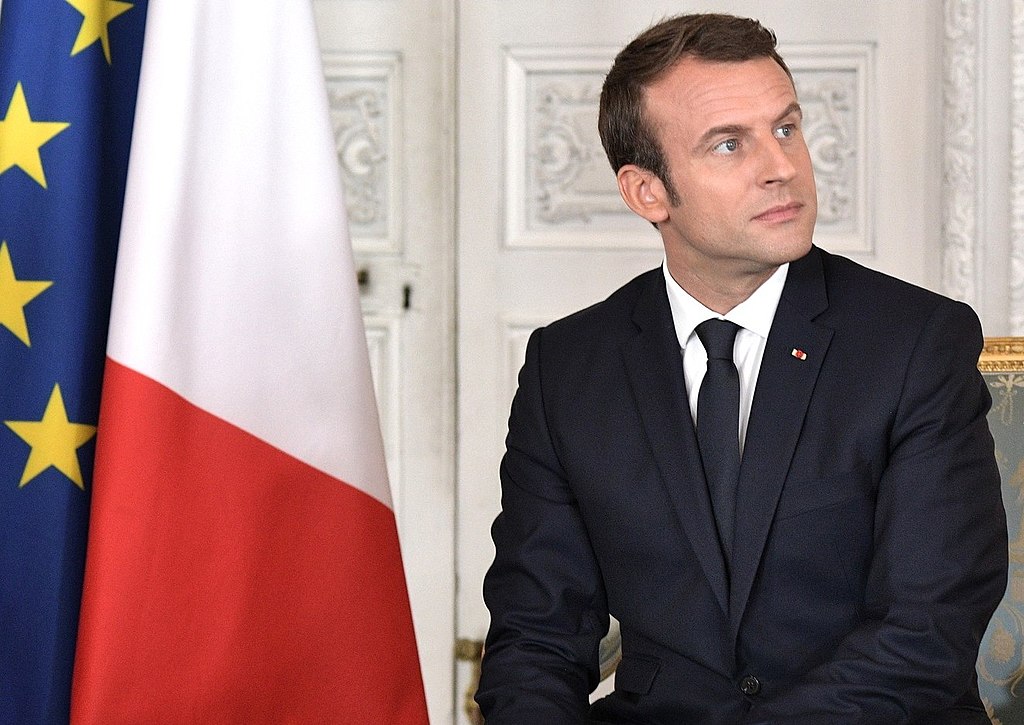French President Emmanuel Macron convened key ministers and experts on Wednesday to address growing concerns over Iran’s nuclear program, amid fears that rising U.S.-Iran tensions could escalate into military conflict. The rare cabinet-level meeting underscores European anxiety over potential U.S. or Israeli airstrikes if no diplomatic breakthrough is reached soon.
Washington’s recent military buildup in the Middle East, including additional warplanes, comes alongside an ongoing bombing campaign targeting Iran-backed Houthi rebels in Yemen. U.S. Defense Secretary Pete Hegseth’s move has fueled speculation among European officials that a direct strike on Iran could be imminent.
President Donald Trump has warned Iran's Supreme Leader Ayatollah Ali Khamenei of severe consequences, including airstrikes and economic sanctions, if Iran fails to reenter negotiations on its nuclear activities. Trump withdrew from the 2015 Iran nuclear deal, reimposing sanctions and pushing a “maximum pressure” strategy, which has since led Iran to exceed uranium enrichment limits, edging closer to weapons-grade levels—claims Iran denies.
France, Germany, and Britain have ramped up diplomatic efforts, urging Tehran to return to the negotiating table. Recent technical-level talks aim to establish a framework for renewed dialogue. European powers are targeting an agreement by August to reset nuclear limits and lift sanctions ahead of the deal’s October 2025 expiration.
The urgency is heightened with Israel’s foreign minister visiting Paris and Western allies planning discussions with U.S. Secretary of State Marco Rubio during an upcoming NATO meeting in Brussels.
As geopolitical tensions rise, Europe seeks to avoid conflict and revive diplomacy to prevent Iran from advancing its nuclear capabilities unchecked.ctions, European diplomacy Iran, Israel Iran conflict, NATO Iran discussions.



 Pentagon Ends Military Education Programs With Harvard University
Pentagon Ends Military Education Programs With Harvard University  Norway Opens Corruption Probe Into Former PM and Nobel Committee Chair Thorbjoern Jagland Over Epstein Links
Norway Opens Corruption Probe Into Former PM and Nobel Committee Chair Thorbjoern Jagland Over Epstein Links  Trump Signs Executive Order Threatening 25% Tariffs on Countries Trading With Iran
Trump Signs Executive Order Threatening 25% Tariffs on Countries Trading With Iran  Jack Lang Resigns as Head of Arab World Institute Amid Epstein Controversy
Jack Lang Resigns as Head of Arab World Institute Amid Epstein Controversy  Trump Allegedly Sought Airport, Penn Station Renaming in Exchange for Hudson River Tunnel Funding
Trump Allegedly Sought Airport, Penn Station Renaming in Exchange for Hudson River Tunnel Funding  U.S. Announces Additional $6 Million in Humanitarian Aid to Cuba Amid Oil Sanctions and Fuel Shortages
U.S. Announces Additional $6 Million in Humanitarian Aid to Cuba Amid Oil Sanctions and Fuel Shortages  New York Legalizes Medical Aid in Dying for Terminally Ill Patients
New York Legalizes Medical Aid in Dying for Terminally Ill Patients  Nighttime Shelling Causes Serious Damage in Russia’s Belgorod Region Near Ukraine Border
Nighttime Shelling Causes Serious Damage in Russia’s Belgorod Region Near Ukraine Border  Netanyahu to Meet Trump in Washington as Iran Nuclear Talks Intensify
Netanyahu to Meet Trump in Washington as Iran Nuclear Talks Intensify  Missouri Judge Dismisses Lawsuit Challenging Starbucks’ Diversity and Inclusion Policies
Missouri Judge Dismisses Lawsuit Challenging Starbucks’ Diversity and Inclusion Policies  Trump Signs “America First Arms Transfer Strategy” to Prioritize U.S. Weapons Sales
Trump Signs “America First Arms Transfer Strategy” to Prioritize U.S. Weapons Sales  Japan Election 2026: Sanae Takaichi Poised for Landslide Win Despite Record Snowfall
Japan Election 2026: Sanae Takaichi Poised for Landslide Win Despite Record Snowfall  TrumpRx.gov Highlights GLP-1 Drug Discounts but Offers Limited Savings for Most Americans
TrumpRx.gov Highlights GLP-1 Drug Discounts but Offers Limited Savings for Most Americans  Trump Endorses Japan’s Sanae Takaichi Ahead of Crucial Election Amid Market and China Tensions
Trump Endorses Japan’s Sanae Takaichi Ahead of Crucial Election Amid Market and China Tensions  U.S.-India Trade Framework Signals Major Shift in Tariffs, Energy, and Supply Chains
U.S.-India Trade Framework Signals Major Shift in Tariffs, Energy, and Supply Chains  TrumpRx Website Launches to Offer Discounted Prescription Drugs for Cash-Paying Americans
TrumpRx Website Launches to Offer Discounted Prescription Drugs for Cash-Paying Americans 































